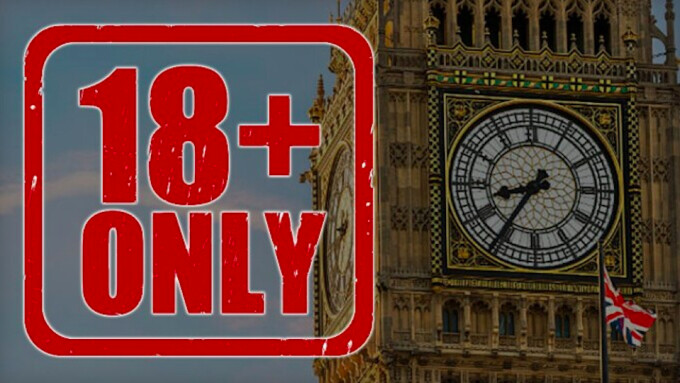LONDON — A U.K. parliamentary committee published earlier this week a report on the draft of a restrictive Online Safety Bill being actively promoted by Boris Johnson’s government, several Labor MPs and virtually all the U.K. press.
“Britain’s online safety bill needs a sweeping overhaul to prevent children from accessing pornography, vulnerable people from being encouraged to commit self-harm and negligent tech chiefs from failing to protect users, according to a committee of MPs and peers,” The Guardian reported Monday.
Despite serious concerns about the bill’s infringement on freedom of expression and privacy, voiced by several digital rights organizations worldwide, the parliamentary committee’s report recommended several measures to tighten regulations on online content, often very specifically targeting “pornography.”
The committee’s Conservative chair, Damian Collins MP, called the current online landscape “the land of the lawless” and extolled the virtues of more government intervention in public expression.
“A lack of regulation online has left too many people vulnerable to abuse, fraud, violence and in some cases even loss of life,” he claimed.
The committee spent six months analyzing the government’s proposals for “online safety” reforms in an atmosphere where the entire spectrum of media outlets — from extreme-right tabloids, to the supposedly liberal Guardian, to the ever-present BBC — have been stoking multiple moral panic campaigns around adult content online.
Conservatives Eager to End the Era of 'Self-Regulation' Online
Two weeks ago, the Johnson government signaled to establishment newspaper The Times that it is ready to revive an age verification scheme for online adult content — a plan previously shelved in favor of the pending Online Safety Bill.
As XBIZ previously reported, the section of 2017's Digital Economy Act that mandated age verification for accessing online adult content was set aside in October 2019. At the time, the U.K. government issued a statement explaining that it intended to seek a more "comprehensive online harms proposals," citing among other issues the need to address regulating social media.
The Times was told that an age verification plan was now “being looked on with approval by Nadine Dorries, the culture secretary, and Nadhim Zahawi, the education secretary.”
“Their support follows work by Dame Rachel de Souza, the Children’s Commissioner, who has sent a report to ministers recommending that age verification become compulsory on all porn sites,” The Times added.
According to tech news site TechCrunch, the committee’s report endorsed the government’s push “to go beyond industry self-regulation by enforcing compliance with a set of rules intended to hold tech giants accountable for the content they spread and monetize — including via a series of codes of practice and with the media regulator, Ofcom, given a new major oversight and enforcement role over Internet content.”
“The era of self-regulation for big tech has come to an end,” committee chair Damian Collins declared.
Crafting 'a New Form of Censorship'
TechCrunch also reported the committee's demand that any new law aimed at online safety “require companies to act on, for example, misogynistic abuse or stirring up hatred against disabled people” since, according to the committee, “Leaving such abuse unregulated would itself be deeply damaging to freedom of speech online.”
“In earlier iterations the legislative plan was given the government shorthand ‘Online Harms’ — and the draft continues to target a very broad array of content for regulation, from stuff that’s already explicitly illegal (such as terrorism or CSAM) to unpleasant but (currently) legal content such as certain types of abuse or content that celebrates self harm,” TechCrunch noted.
Critics, the news site added, have "warned that the bill poses huge risks to free speech and freedom of expression online as platforms will face the threat of massive fines (and even criminal liability for execs) for failing to comply with an inherently subjective concept of ‘harm’ baked into U.K. law.”
Digital rights and free speech advocates insist the bill will “introduce a new form of censorship.”








